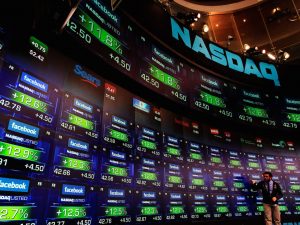 If you want to learn about the work of currency exchanges in Nigeria, read this article. It will give you an insight into how these institutions function and what you can expect from them. The purpose of currency exchanges is to allow people to trade currencies. It is important to understand the functions of currency exchanges in order to make informed decisions when trading currency. In addition, if you want to know about the different types of currency exchanges in Nigeria, you should know about the rules that govern them.
If you want to learn about the work of currency exchanges in Nigeria, read this article. It will give you an insight into how these institutions function and what you can expect from them. The purpose of currency exchanges is to allow people to trade currencies. It is important to understand the functions of currency exchanges in order to make informed decisions when trading currency. In addition, if you want to know about the different types of currency exchanges in Nigeria, you should know about the rules that govern them.
Currently, the official exchange rate has declined by about 19.4 percent in five years, and the parallel market has a far worse track record. Today, a dollar costs 560 naira, compared to 475 naira in January. This 17.9 percent devaluation occurred in less than eleven months, drastically affecting the purchasing power of the naira. However, there are some promising developments in the near future.
The evolution of the foreign exchange market in Nigeria has been shaped by changes in the country’s economic structure and international trade patterns. Before 1958, most foreign exchange was earned by the private sector and held by commercial banks which acted as agents for local exporters. The vast majority of this foreign exchange was earned from agricultural exports, and the Nigerian pound was tied to the British pound sterling at par. This resulted in a slow development of an active foreign exchange market in Nigeria.
While Nigeria’s eNaira (eNaira) is a virtual currency, it is not yet fully traceable. In the near future, the country may see more foreign exchange earnings, which would make it easier to tax its citizens. But for now, it’s unclear whether eNaira will have a huge impact on the value of the naira. Further, the adoption of eNaira would strengthen the government’s tax base, which will benefit both the formal and the informal sectors.
The main reason why foreign currency is scarce in Nigeria is the lack of foreign currency. Therefore, it’s important to use the official currency exchanges in Nigeria when possible to avoid risky black markets. If you’re not sure whether the currency exchanges in Nigeria offer naira, make sure to check with the local bureau de change. Those in Nigerian cities that are rich in Nigerian diaspora are more likely to offer the currency in those locations. The rate of naira fluctuates greatly and you need to pay attention to this before making any major purchases.
Another important role of currency exchanges in Nigeria is to facilitate the sale and purchase of cryptocurrencies. Aside from offering a variety of currencies, many Nigerians are turning to these new technologies for investment. Several of the exchanges provide a range of services, from buying and selling cryptoassets to using a platform for trading. If you are a beginner or an advanced investor, NairaEx is probably the best option for you. It offers a standard trading platform and separate Pro platform.
